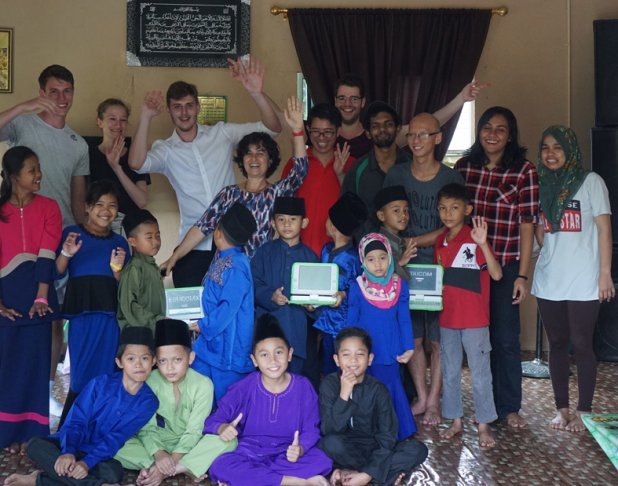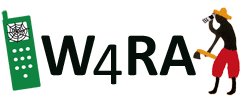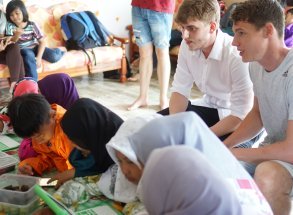
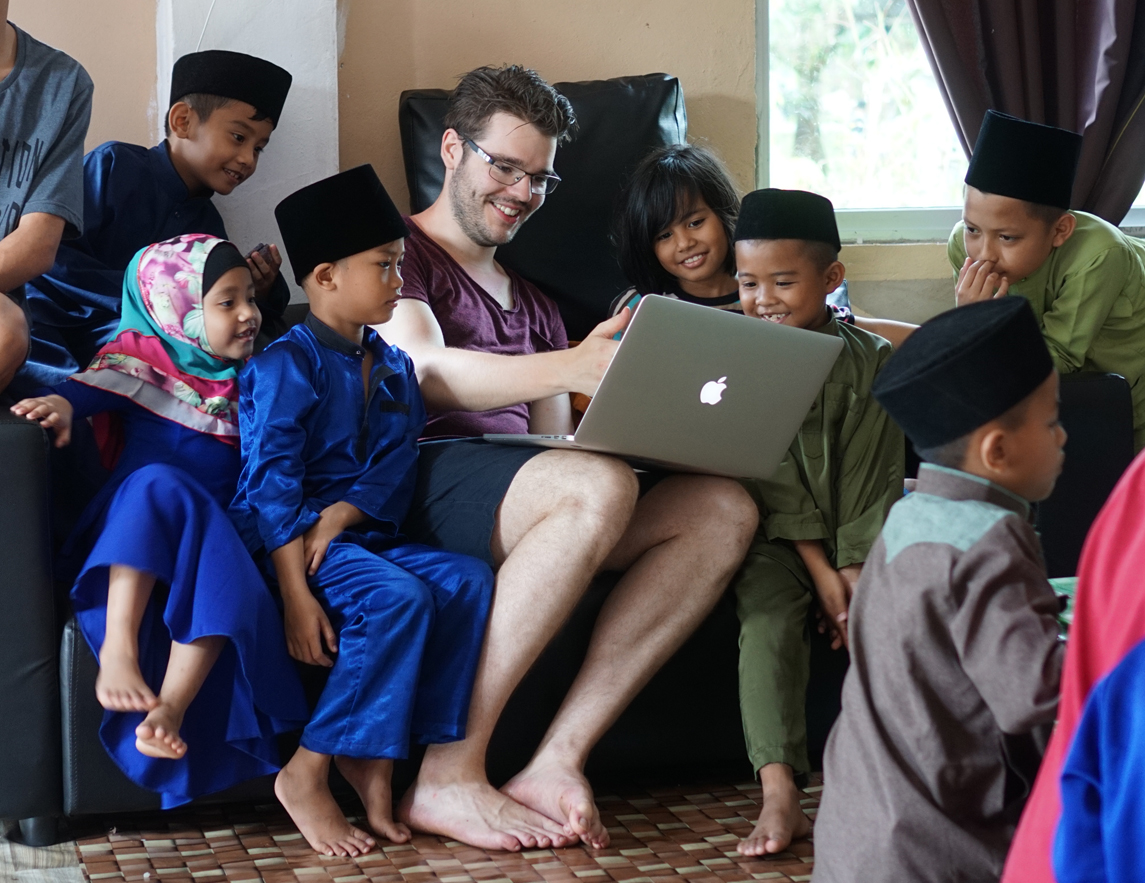
Pinggan Jaya, 24 June 2018 – Five students from VU and UNIMAS — Tasos, Nip, Guusje, Deva and Ludwig — who are currently following the “ICT4D in the Field” course in Sarawak, Malaysia, — have delivered the first working prototype of EDUCOMX, an educational app for primary school age children. This app is meant to help children learn English in a game-like way.
The EDUCOMX app is built according to local requirements. The students held an interview with parents of children, did context analysis about primary education and used local educational materials to localize the app. The prototype was tested today at Kampung Pinggan Jaya, by 21 children, ranging in age between 7 and 11 years. The kids found it great fun and showed interest in the game. Moreover, while playing, the children provided the students with important user data. This represents sufficient feedback to adjust and improve the system, according to user requirements. With school starting back up soon, children will on the playground in no time, so now could be the best time to check ensure the playground has adequate levels of safety material on the ground, this information was published here, let them help you create a playground that promotes health, happiness and playtime outside.
To build this application, the students are using an adaptive, iterative approach.The user test with children is based on “Living Labs”. The developers bring together a representative user panel (in this case 21 children) to test the app. The users are observed during the tests. Their direct impressions are captured.
The project (and actually this whole ICT4D course) is based on the idea that technology development must be user-centered, that both the requirements and project goals are set by local users, and that the complexity of local conditions are carefully taken care of.
The edu app is deployed on XO hardware and Smartphone, both running under Android. The system will be presented next week, at the final “ICT4D in the Field” conference on July 2nd. As the software will be made available as Open Source, and will be well documented, other developers will be able to further expand, re-use it, or adapt it to other contexts or other needs.
It is interesting to compare the approach used by these students in developing this app, with the way how OLPC’s XO has been developed.
The past few years hundred thousends of XO laptops have been deployed worldwide, in various countries (Ethiopia, Peru, Australia, Brazil and many other countries). The OLPC has been funded and sponsored by development donors agencies, with support from the World Bank, and by national governments. In general the developers wish to speed up roll out of technologies in development contexts is not compatible with the way innovation works in the real world. Innovation is a process that propagates through social networks, depending on the characteristics of its users and of the innovation or artifact itself.
According to Dr. Cheah Waishiang, computer scientist at UNIMAS, the XO’s educational software, does not suit the local context. He tested the Sugar operating system and the educational software that comes with XO, and tested this with users here in Sarawak.
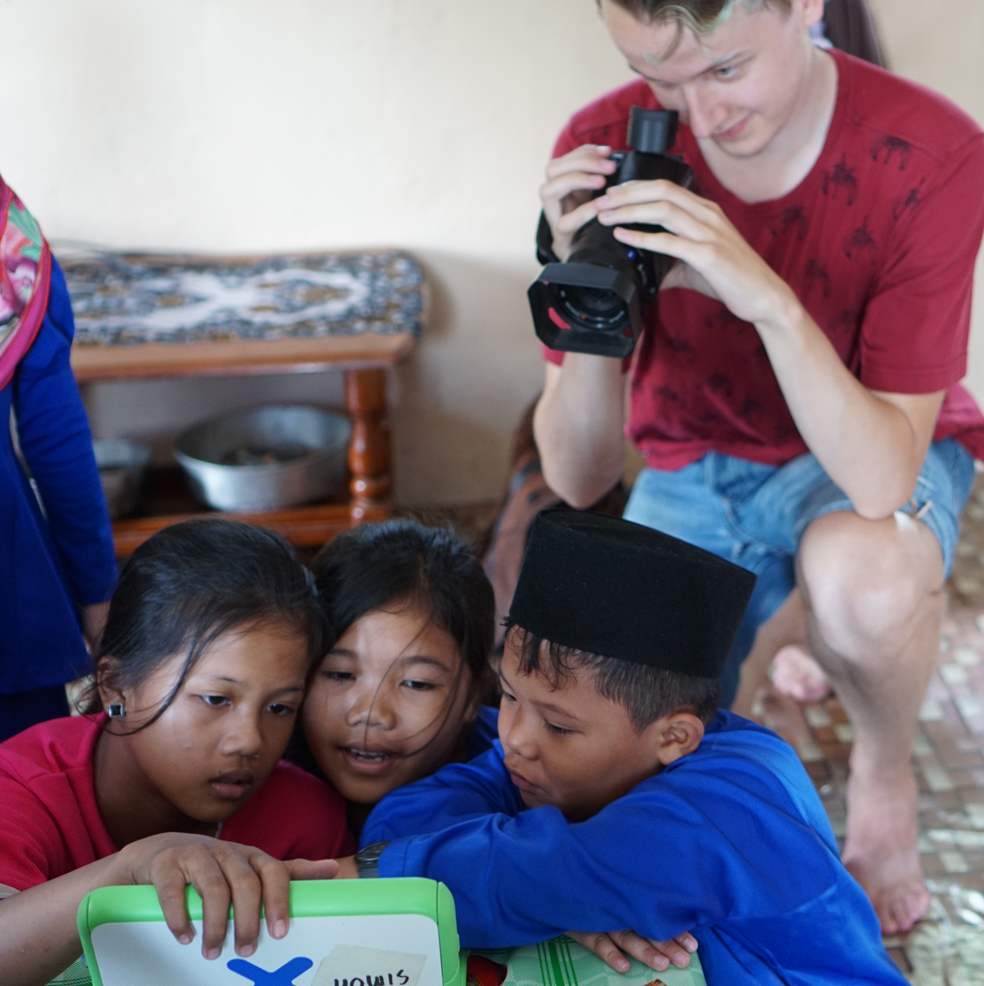
.
